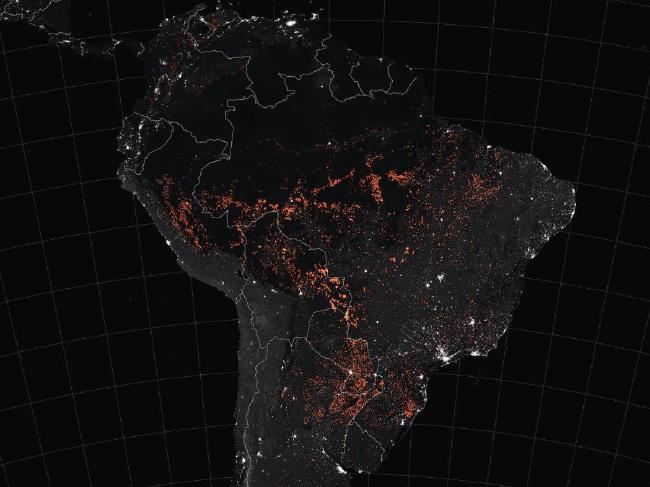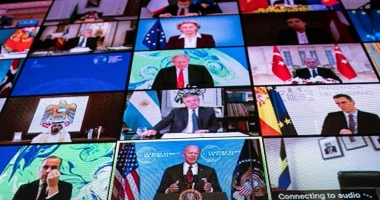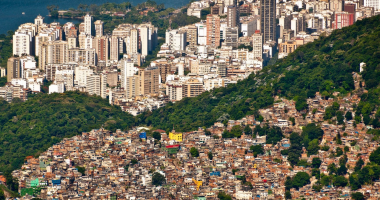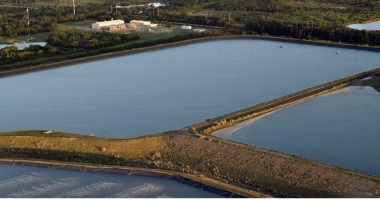Climate, Health and Equity Brief
Subject: Health, Equity And Politics In The Amazon
August 29, 2019
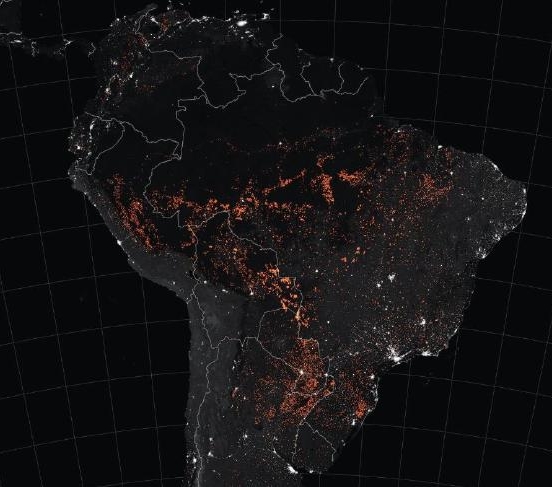
Hot Topic: The Amazon. Record-breaking fires continue to rip through the Amazon, fueling concerns for the health of our planet. Left to nature, the Amazon rarely burns due to its high humidity. Yet there are more than 2,500 fires currently raging in the world’s largest tropical rainforest, which provides 20 percent of our planet’s oxygen, stores 25 percent of our carbon dioxide, and is home to 400 indigenous groups and one in 10 of all known animal species. Tragically, most of these fires are man-made.
Humans have clear-cut 17 percent of the Amazon rainforest over the past 50 years, primarily to raise cattle in order to feed the world’s demand for beef. Slashed budgets, relaxed environmental policies and Brazilian President Jair Bolsonaro’s calls to open the forest to development have fueled the problem, which has resulted in a 278% increase in Amazon deforestation compared to 2018.
The lives and homes of the millions of indigenous people who call the Amazon home are under threat, and smoke from the fires is impacting the air quality as far as 1,700 miles away, jeopardizing the health of tens of millions of people. Ultimately the health implications of the Amazon fires are global, however, as the rainforest is critical to our ability to capture carbon and regulate earth’s temperature.
What can we do to help? Reduce our demand for beef, wood and paper products. Reduce our use of fossil fuels. Hold companies that exploit old-growth forests accountable. And now more than ever, we must elect leaders that will strengthen, rather than rolling back, the environmental protections that are vital to sustaining our planet.
—Matt & Traci, GMMB
Health
The Amazon plays a critical role in creating breathable air for the planet, and some scientists are comparing the record-breaking fires to the extinction-causing rainforest collapse that took place 300 million years ago. (Vox)
NASA captured the extreme air pollution resulting from Amazon fires on its satellite map. (Inverse)
Survivors of human-enhanced disasters such as wildfires, hurricanes, floods, and heatwaves are experiencing dramatic increases in depression, PTSD, anxiety, suicidal thoughts, violent behavior and increased use of drugs and alcohol. (The Guardian)
Warming water temperatures have caused a spike in cases of a severe skin infection on the Atlantic Coast, across the Gulf states, and in the Pacific Northwest. (Buzzfeed)
More than 100 storage sites for coal-burning power plants’ toxic leftovers lie in areas that FEMA has indicated are at high risk for flooding. (Politico)
New research has found that 100-year floods could become annual occurrences in 171 counties along the U.S. East Coast and Gulf of Mexico. (Yale360)
Equity
Several hundred uncontacted indigenous tribes living in the Brazilian Amazon have been displaced by the fires. (Green Matters)
The indigenous people of the Amazon are being displaced by miners exploiting the forest’s dormant deposits of copper, iron, and gold. (CNN)
Politics & Economy
Years of slashing budgets and relaxed environmental policies in Brazil have led to a 278% increase in deforestation in the Amazon, much of it due to man-made fires designed to clear land to raise cattle. (TIME)
The Navy quietly shut down its specialized U.S. Navy Task Force Climate Change in March, reversing an Obama-era initiative designed to prepare naval leadership for sea rise, melting ice sheets and rising ocean temperatures. (Navy Times)
Action
Leading up to the Global Climate Strike on September 20, Seventh Generation will donate its six-figure ad buy to the Youth Climate Movement. (Fast Company)
As fires rage within the Amazon forest, here are three things you can do to make an impact.
Upcoming Events
- September 4-6: The 2019 Planetary Health Annual Meeting
- September 12: Forests, Food & Land Day: Meeting the 30×30 Challenge
- September 23: UN Climate Summit 2019
- September 23-29: Climate Week NYC
- November 2: APHA Annual Meeting and Expo: “Creating the Healthiest Nation: For science. For action. For health.”
- November 11-22: Santiago Climate Change Conference (COP25)
“What we are doing to the forests of the world is a mere reflection of what we are doing to ourselves and to one another.”
—Mahatma Gandhi
Want to join the millions who will join young climate activist demanding action?
Learn how to take part in the Global Climate Strike.
Have feedback on this issue? Email us


